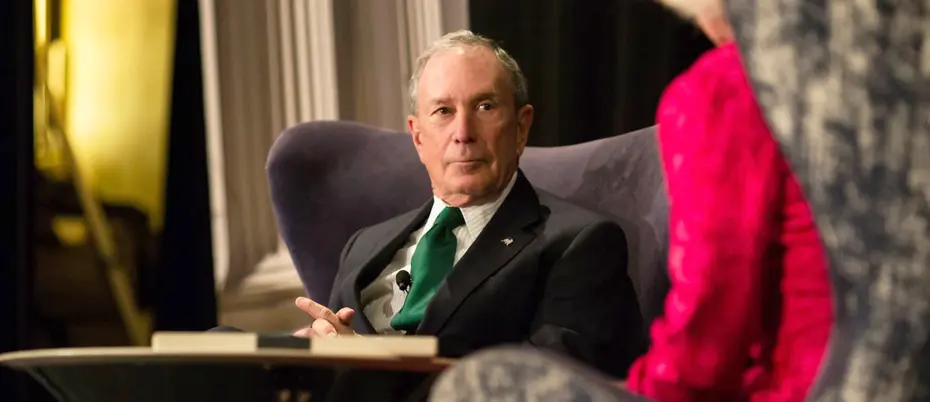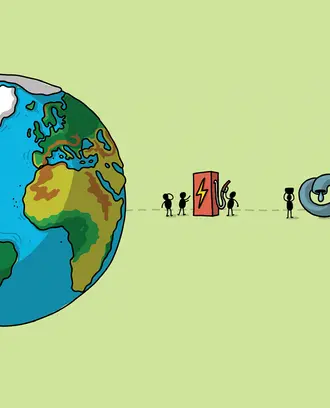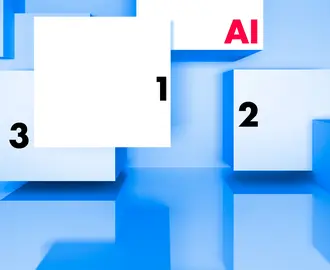Climate Change
Bloomberg: Don’t let federal inaction dictate climate change agenda
With the United States set to exit the Paris climate agreement, public- and private-sector leaders concerned about climate change may need to focus on state and local action.
Michael Bloomberg was visiting the Auschwitz memorial in Poland in June when he learned that President Donald Trump planned to pull the United States out of the Paris climate agreement combatting global climate change.
Upon hearing the news, Bloomberg went to Paris, met with Mayor Anne Hidalgo and new French President Emmanuel Macron, and announced that the United States, led by a grassroots group of public- and private-sector leaders, would remain committed to the Paris Agreement.
“Even if it’s not the American government, it’s the American people that are behind this,” Bloomberg said Dec. 7 in Cambridge during an evening keynote address as part of Together In Climate Action: Northeastern North America Policy Summit, an event focused on climate change leadership hosted by MIT and featuring speakers from New England and eastern Canadian provinces.
“I think Trump did the environmental movement a favor because he motivated people, not just in the U.S. but around the world,” said Bloomberg, the United Nations secretary general’s special envoy for cities and climate change. “He galvanized people who say, ‘It’s not fake science. It’s not alternative facts.’”
Switching from coal, for the environment and economy
Closing coal-fired power plants has played an important role in helping the United States reduce greenhouse gas emissions. More than 250 plants, or half the nation’s total, have closed since 2011.
In that time, Bloomberg, the founder of the Bloomberg LP data and media company, has contributed more than $110 million to the Sierra Club’s Beyond Coal campaign to close the high-polluting plants through his foundation, Bloomberg Philanthropies. Last month, he pledged another $50 million to partners worldwide to catalyze a global effort to move nations away from coal dependence.
“It’s the economics of power generation that’s behind getting rid of coal,” Bloomberg said. Other energy sources are not without problems – fracking natural gas, for example, or storing and distributing energy from renewables – but they cost less and impact the environment less, he said.
The challenge is finding new jobs for coal miners, who number 15,000 in the U.S. today compared to more than 250,000 in the 1980s, said Bloomberg, who called Trump’s proposed cuts to programs to help coal miners find jobs “hypocritical.”
“Coal jobs went away when they automated pulling coal from the ground,” he said. “We should have sympathy for those who lost their jobs. We have an obligation in our society to help the less fortunate.”
Making an impact without federal support
Even though the Trump administration plans to exit the Paris climate agreement, Bloomberg remains optimistic the country can move forward at state and local levels.
Bloomberg is co-chair (with California Gov. Jerry Brown) of America’s Pledge, a group of cities, states, businesses, and universities – including MIT – committed to supporting the Paris climate agreement. All told, these entities represent more than half the U.S. population.
“It’s companies and individuals and local governments that make the difference,” said Bloomberg, the co-author (with former Sierra Club Executive Director Carl Pope) of the book “Climate of Hope: How Cities, Businesses, and Citizens Can Save the Planet.” “It’s what the producers and consumers of the energy do.”
Corporations have several motivations, he noted: Customers want sustainable products, employees want to work in a healthy environment, investors want a socially responsible portfolio, and neighbors want to live free of pollutants. Even Exxon Mobil urged Trump not to drop out of the Paris Agreement, Bloomberg said. “They understand what’s happening and want to get ahead of it. Putting your head in the sand is not a good thing to do.”
For local governments, it comes down to improving public health. As three-term mayor of New York City, for example, Bloomberg planted 1 million trees, helped 2,500 buildings convert from coal to natural gas as a heat source, and instituted a public smoking ban in parks, beaches, and pedestrian plazas – even though it earned him plenty of “one-finger salutes” from the public.
Consumers can take small steps, he said. “Paint your roof white. Buy a car that’s more efficient. Turn off your AC before you leave the house. Switch to LED bulbs.”
Bloomberg told attendees to remember that the impact of their action will be felt far in the future. “I’m not going to be around to see 2050, but your kids, your grandkids, they’re drinking the water, they’re breathing the air,” he said. “You look them in the eye, you know who will get sick.”




